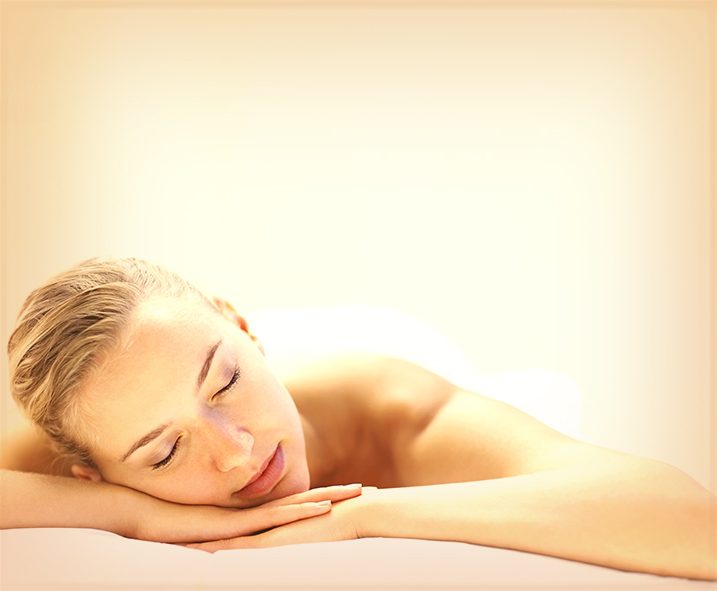Sleep is as essential to our health and wellbeing as diet and exercise are. The average person spends 36% of their lives asleep and it is very important that you are getting enough sleep and that the quality of sleep is also sufficient. We live in a world where we act like being so busy and stretched thin that you must go without sleep just to get it all done is something to be proud of. The average sleep time historically was about 9 hours. Now, we average about 6.5 hours with an increasing number of us living on even less. As sleep is a time of restoration and rebuilding within the body, by not getting enough both in terms of quantity and quality may have negative health impacts.
Re-Building Your Brain While You Sleep
While we are asleep, our bodies may be resting, but our brains are busy taking out the trash. Flushing of the fluid around the brain throughout the brain cells removes waste products. This process mainly occurs during sleep. Therefore without sleep your brain basically cannot properly rid itself of waste products including amino acids. These include substances such as amyloid beta – a chemical involved in Alzheimer’s. Other brain processes such as memory consolidation and processing are carried also out during sleep. Studies have shown that students will retain more information if they sleep on it. The 5 hours after learning is the critical time for memory consolidation and it is sensitive to sleep deprivation. Have you ever had a problem and then slept on it and figured it out the next morning? This is because problem solving ability increases during sleep because neural connections increase.
Lose Weight – While You Sleep!
Rates of overweight and obesity are continuing to rise in Australia. Obesity has overtaken smoking as the leading cause of premature death and illness in Australia. While contributing factors include sedentary lifestyle and poor diet, another possible factor (and not to be confused as a ‘magic solution’) is sleep. When you do not get enough sleep your body craves stimulants such as sugar, carbohydrates, caffeine and nicotine to help it sustain itself. Lack of quality sleep can lead to poor diet and lifestyle choices as your body is simply too tired to cope without some sort of additional help. Quality sleep will not only reduce your risk of relying on these stimulants but sleep also decreases the production of grelin- the hormone responsible for hunger. So getting a good night’s sleep can also help you stay on track with maintaining a healthy diet throughout the day.
What Affects our Ability to Sleep?
Many different facets of modern life interfere with the natural rhythm of our body clock also known as circadian rhythm. Circadian rhythm is the internal system that regulates our wake/sleep pattern. This rhythm is controlled by light. In the natural world this would mean daylight. Nowadays, we are surrounded by lights from electric light bulbs, computer screens, televisions and mobile phones at all hours of the day and night. This can interfere with this natural rhythm which evolved over thousands of years in a world dominated by sunlight as the main source of light. Overstimulation by unnatural light sources is thought to be one of the contributory factors to the decline of sleep quality in modern life. So do not use your laptop or phone at ALL in your bed. This will lead to bad habits and interfere with your sleep cycles.
Another factor affecting sleep is our work. High work demands, physical effort at work, work related stress, lack of social connections at work and feelings of not being supported can all contribute to sleep disruption. Other factors such as obesity, lack of exercise, age, gender and even marital status are all predictors of sleep deprivation. The highest risk category?… Being over 45, female, a smoker and overweight.
Sleep Patterns Are Different For Everyone
The quality of sleep as mentioned before is as crucial. What is equally important is recognizing that people have different sleep patterns at different times in their lives. Teenagers for example have an internal body clock that predisposes them to stay up late at night and wake up late in the day. As we age, people become less capable of sleeping in a large block of time. Older people do not need less sleep but napping is a more effectual way for them to rest. The key things to think about in terms of sleep are- Do you wake up feeling rested or is it very difficult for you to get out of bed in the morning? Do you wake up during the night? Do you experience a slump in your energy during the day? Do you find you rely of coffee, nicotine or sugar etc to wake you up or get you through the day? Do you rely on pharmaceuticals or alcohol to help you get to sleep at night? If so then you may need to take control of your sleep pattern and adopt some simple practices to improve your sleep.
Ways To Improve Your Sleep
Exercise
Exercise is a fantastic tool to help aid sleep. Vigorous exercise in the morning or early afternoon can help you sleep better at night because it decreases stress levels. It should be avoided right before bed as it will stimulate the body to be more wakeful. Gentle exercise like walking, or yoga are helpful as part of an evening unwinding routine.
Quit The Stimulants
Caffeine, nicotine, sugar and other stimulants should be avoided close to bed time. Alcohol may help you to get to sleep in the first place, however overall it decreases the quality of your sleep throughout the night as your body works to break it down. Avoiding drinking a lot of liquids for 2 hours before bed is also helpful. Waking in the middle of the night to go to the bathroom has a detrimental effect on the quality of your sleep.
What To Eat
A light meal can be helpful to induce sleep. You should avoid going to bed hungry. However, heavy or spicy meals have the opposite effect and as your body works to digest these food it disturbs the normal processes you should be going through during sleep. Avoid foods that contain tyramine, such as citrus fruits, red wine, cheese and chocolate. Foods rich in the amino acid tryptophan, such as turkey and tuna, help induce sleep.
Environmentally Friendly
Creating an environment in your bedroom that is conducive to sleep is crucial. Apart from the absence of bright light the temperature should be right for sleeping, even background noise will affect your sleep so if necessary use earplugs. Also avoid other activities such as eating or working in your bedroom. This will help your mind to associate this room with sleep and aid in moving your body to the sleep stage.
Go To Bed Only When Tired
Avoid going to bed when you are not actually tired. Lying in bed thinking about work or the fact that you are not asleep yet will not induce sleep. Don’t look at the clock and count how many hours you have left before you get up. This can lead to stress and anxiety which only further inhibits your sleep. If you are having trouble sleeping then it might be a good idea to get up and go into another room and do something restful (not looking at a screen!). This may include reading a book, listening to soothing music or meditation. You could also keep a journal or notepad next to the bed to jot down any thoughts or notes that might be on your mind. So put on paper about how you need to hang the washing out, feed the neighbour’s cat and have the presentation emailed in the morning, so you are not dwelling on these while trying to get some sleep.
Maintaining the circadian rhythm will help to improve your sleep quality. This means going to bed and waking up at the same time each day as much as possible (yes even on weekends). Napping, though useful for some people should be avoided for those who find it difficult to sleep at night. If you are a person who must nap then avoid napping later in the day (at least 5 hours before bed). Establishing this routine helps your body to learn when it’s time to wake up and when it’s time to sleep.
Wake Up Sunshine!
Don’t hit the snooze button! While it might feel like those extra minutes leave you more rested, morning snoozes can leave you feeling groggier and less alert. And late. When you hit snooze and fall back asleep, your sleep cycle starts from the beginning. Except this time when your alarm goes off, if you’re in a deeper stage of sleep, it’s a lot harder to wake up. The end result is that the last proportion of your sleep becomes highly fragmented. This means you miss out on the recovery benefits of consolidated sleep, and your ability to function effectively during the rest of the day may be impaired. Bright lights in the morning will help to stimulate the body into wakefulness mode. Going outside in the light or opening up the blinds in your room will help to rid you of that early morning grogginess.
By Alex Hills
Alex has been a qualified naturopath and in the natural medicine field for over a decade. During this time has had the opportunity to experience almost every aspect of the industry. She has been in clinical practice, vitamins manager at a pharmacy, marketing coordinator for an organic skin care company as well as training other practitioner in an area manager role.
Alex now works full time at Research Nutrition’s Brisbane head office as the Sales and Marketing Coordinator to satisfy her inner tech-nerd and passion for educating both customers and patients in a fun and informative way!








Leave a Reply
Want to join the discussion?Feel free to contribute!